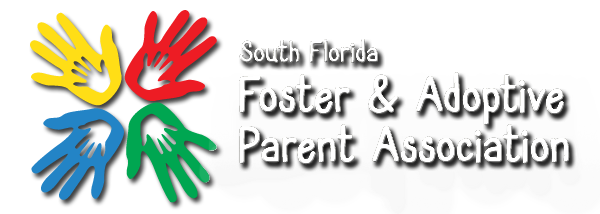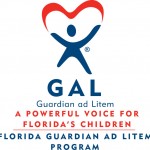GAL staff, volunteers and supporters:
Every year the Guardian Ad Litem champions legislation to ensure the law supports what is best for children in foster care. Let me give you information that lead to this year’s legislation we are championing.
Under Florida law a parent may place her child for adoption with a private adoption agency, even if the child is in foster care as long as the parents’ rights have not been terminated. This process, called intervention, allows a parent to participate in the selection of a prospective adoptive family, and have the comfort of knowing that the child will be placed expeditiously into a loving home, with permanency achieved in a short time frame. This occurs sometimes when a parent makes a courageous decision when they know they don’t have the ability or desire to parent their child. We support these parents when after reviewing all their options that this is the best option for them.
This year we are championing a change in law that is necessary by a recent District Court of Appeals case that identified a problem in existing law on intervention. The case is called “In RE: The Adoption of K.A.G.”. The case tells a story of a boy impacted by the adoption intervention law. After a four-year old boy’s mother is murdered by his father, he is sheltered by the Department of Children and Families and placed with his maternal aunt. While the father is in jail awaiting trial, he chooses his mother (the child’s paternal grandmother) to adopt the child effectively eliminating the maternal family from the child’s life. The father asserted “that because his parental rights were still intact, he had a constitutional right to make a permanency determination for child.” The “paternal grandmother asserted “that the trial court was not permitted to veto a parent’s decision simply because it perceived that another placement might be ‘better.’” Because of the wording of Florida’s adoption statute, the court could only determine if the paternal grandmother was a fit and proper placement for the boy. The court could not consider what was best for the boy (including possibly staying with his maternal aunt).
The Problem
Courts view best interests differently between family law cases and dependency cases (when a parent has abused, neglected or abandoned their child). The current law permits even a parent who has murdered a spouse, committed egregious acts against their children, or who wishes to punish a foster parent that has provided a caring home for their child for a lengthy time to choose who their child will be placed with – without requiring the court to consider what is in that child’s best interests, as it would for any other child in the dependency system.
What is Adoption Intervention?
Under Chapter 63, F.S., an adoption agency may “intervene” in an open dependency case when a parent consents to terminate their parental rights and allow their child to be adopted by someone else. The adoption agency files a motion with the court to “intervene” in the case, and typically tells the court who the parent would like the child to be placed with.
Why is Understanding Adoption Intervention Important?
Adoption intervention can expedite permanency for a child if it occurs early in the dependency case. However, it can also impede permanency and work against a child’s best interest when the child is already living in a safe and loving pre-adoptive home. The same law that can expedite an adoption can be used by parents who murder their spouses, do egregious abuse against their children or wish to punish a foster family that has provided a caring home for their child.
The Solution – Best Interest Standard for Adoption Intervention
Dependency law in Chapter 39, F.S., gives judges broad discretion when determining the best interest of children who are abused by their parents. The GAL program is seeking to make a change to the statute governing adoption intervention which would allow judges to rule on adoption intervention petitions by applying the child’s best interest standard as defined in Chapter 39. In addition, we are seeking legislation requiring the court to advise parents of their right to participate in a private adoption plan at the dependency arraignment hearing.
Some recent legislative initiatives GAL championed:
Since 2005, the Statewide GAL Program has worked with the Legislature and with other child welfare organizations resulting in positive changes for dependent children. Some of these laws we have advocated for include:
- The Regis Little Act” which ensures children who lack capacity will have a guardianship or guardian advocate in place before they become an adult;
- The Quality for Parenting for Children in Foster Care Act” creating a more child and foster family friendly approach to normalcy for foster youth;
- KIDS (Keeping I.D. Safe) Act” to assist in Protection of foster care children’s financial records;
- Guardian ad litem volunteers being allowed to transport children; and
- The Keys to Independence Act” giving a pathway for foster teens to drive;
- Expansion of foster care until 21;
- Attorney ad items for children with special needs, including disabilities.
Thank you for your support for the children we are advocating for every day. Feel free to share with me your comments and feedback.
Respectfully,
Alan F. Abramowitz, Executive Director
Guardian ad Litem Program
600 South Calhoun Street, Suite 274
Tallahassee, Florida 32399

